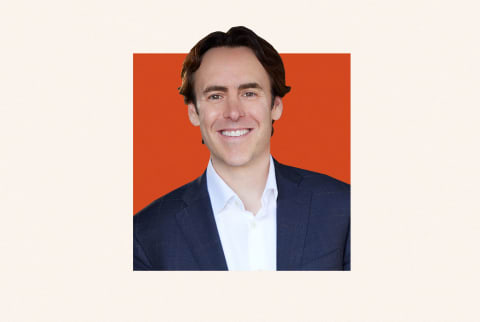Advertisement
Yes, You Can Have A Younger Brain As You Age: You Just Need These 4 Tips


Quick question: How old is your brain? According to brain researcher Marc Milstein, Ph.D., author of The Age-Proof Brain: New Strategies To Improve Memory, Protect Immunity, and Fight Off Dementia, your brain can actually appear older or younger than your actual age, and as you can probably guess, keeping your brain young and spry is key for longevity.
"Making your brain younger is one of the most powerful things you can do to lower your risk for cognitive issues," he declares on this episode of the mindbodygreen podcast.
So you're probably wondering: How do you promote a younger brain? A great question! Below, Milstein offers some of his nonnegotiable tips:
Walk with a friend
"People who walk about 30 minutes a day lower their risk of dementia by about 60%," shares Milstein. (Specifically, you'll want to walk at a pace of at least 112 steps per minute1.) "Studies keep coming out that say, 'This is the best exercise. That's the best exercise.' But if somebody is looking to just get started, just simply walking is really important for your brain health, and it doesn't cost a thing."
However, if you want even more bang for your buck, Milstein recommends taking a morning walk with a friend. Why? "We need morning light," he explains. "That morning light regulates that system2 that helps with your mood, focus, attention, metabolism, and sleep." (All functions important for cognitive health throughout your lifespan!)
As for the social bit: "If you're feeling isolated, maybe walk with a friend or call a friend and make that a time to connect with people," Milstein adds. Prolonged loneliness, after all, has been associated with more than double the risk of developing dementia3. That's not to say you absolutely need to stroll with a friend if you're craving some alone time. According to Milstein, that walk can also serve as a peaceful moment for yourself.
Take the stairs
On a similar note, "We see that people who take stairs over escalators and elevators have younger-looking brains," says Milstein. So if you don't have time in your day for a stroll around the block, simply take the stairs whenever you can.
Personally, I believe taking the stairs is one of the most underrated ways to get fit. Not only do you work on enhancing your leg strength, but climbing stairs also slightly raises your heart rate enough to enter that healthy "zone 2" training range (aka where you can still hold a conversation, but it might be difficult to do so). Additionally, you don't have to carve out time for the gym or even a quick at-home workout; if you're someone who has the choice of taking an elevator or stairs, you can easily make the stairs part of your daily routine. And that choice will pay dividends in the long run.
Eat the rainbow
The vast number of brain-healthy food lists can make your head spin. (Although, we see that as a good thing; there are plenty of foods that can nurture your brain!) However, if you're looking for one cardinal rule, mind Milstein's No. 1 tip: Add more fruits and vegetables to your plate. "There's a really interesting study that found when people have a variety of colors [on their plate], those colors have chemicals that interact in a positive way in our guts, in our brains, and can be very helpful," he notes. Those chemicals (specifically flavonoids) were associated with a lower risk of cognitive decline4.
"Having that intermix of fruits, vegetables, healthy fiber, nuts, berries… All those things are excellent for our brain health. But a really good place to start is colorful fruits and vegetables," adds Milstein.
Rest
According to Milstein, it's good for your brain to take a break once in a while. "To work, and work, and work, and work, and not take a break… There's the mindset of, 'Don't take a vacation,' and 'Always be thinking about goals,'" he notes, which can actually harm your cognitive health in the long run. We've said it once before: Downtime is productive.
In fact, those who prioritize their peace actually find more success. "We see that people who have a mindful moment in the morning tend to have less burnout later in the day," Milstein adds. Consider it your sign to start a daily mindfulness journal.
The takeaway
A younger brain is a healthier brain, says Milstein, but you can maintain a "younger" mind no matter your actual age. The best part? His tips are fairly simple—and the majority are 100% free.
We hope you enjoy this episode! And don't forget to subscribe to our podcast on iTunes, Google Podcasts, Spotify, or Amazon Music!
